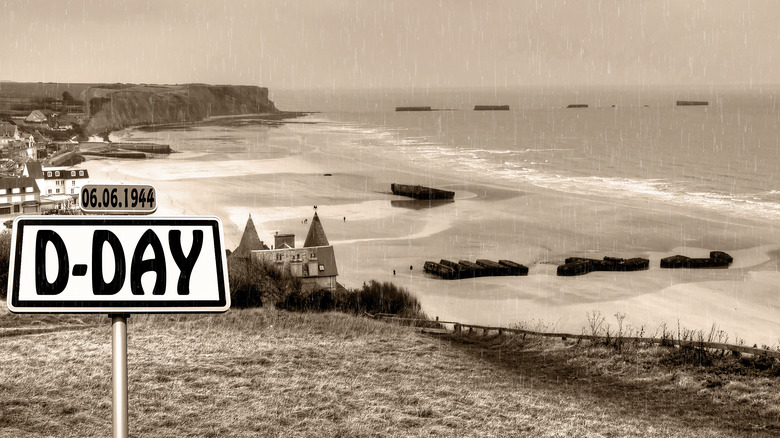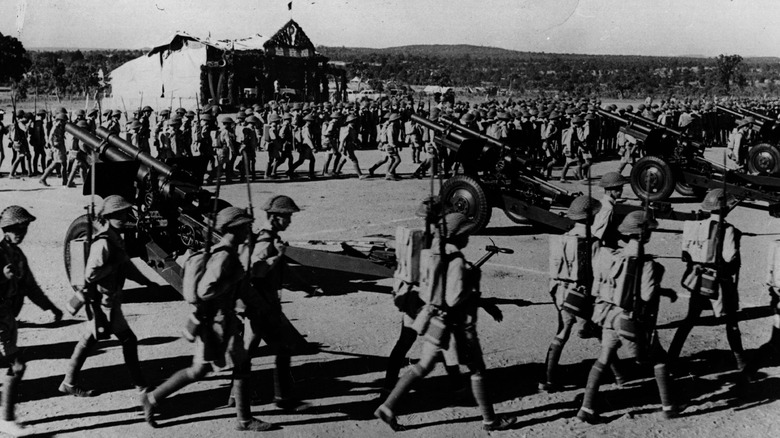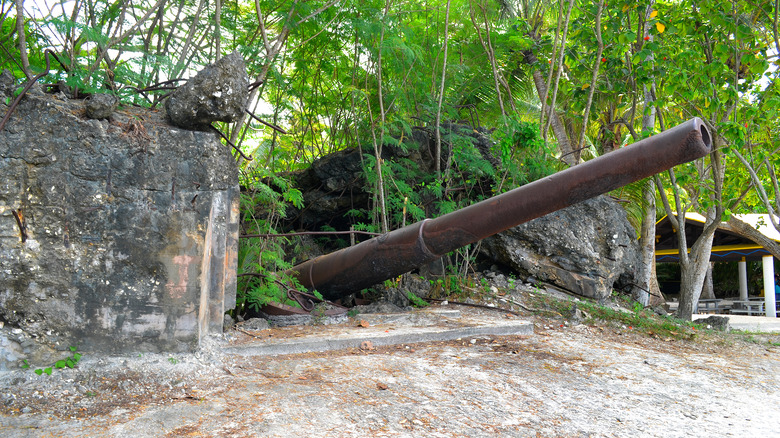Japan's Reaction To The Allies' Invasion Of Normandy
The Allies' invasion of Normandy was a pivotal moment in World War II. Referred to as D-Day, the largest amphibious invasion in history occurred in the French region on June 6th, 1944. Troops from the United States, Great Britain, and their allies descended upon Normandy's beaches to the surprise of the Germans who expected them to invade elsewhere on the coast. The third major player for the Allied powers was the Soviet Union, who's troops closed in on Germany's eastern territories.
One of the many complexities of World War II was the fact that it waged in countries located thousands of miles away from each other. Japan was part of the Axis, along with German and Italy. Japan joined forces with Germany and Italy through the Tripartite Pact in 1940, wherein Japan aimed to continue gaining control in Asia as Germany and Italy did the same in Europe. So how did Japan feel about their prospects after the Normandy invasion?
The Japanese refocused on their Pacific territories after D-Day
The Japanese showed little concern when the Allied troops stormed the beaches of Normandy. What makes this all the more surprising is the fact that Italy had already surrendered. Only the northern part of the country was still fighting alongside the Germans. Rather than being worried about how the Germans would handle the invasion, the Japanese recalled the struggles that the Allies faced due to the trenches across Western Europe during World War I. They assumed that the troops that had just touched down in Normandy would have the same issues. With this in mind, the Japanese decided to focus on regaining progress that they had already lost in the Pacific (per We Are the Mighty).
Some of the ground that the Japanese had lost prior to D-Day occurred during the Battle of Midway in 1942. American cryptanalysts figured out the Japanese codename for the U.S. base at Midway and knew they were planning to attack it. When they arrived at Midway, U.S. aircrafts were ready and eventually forced the Japanese to retreat after losing thousands of men and hundreds of aircrafts.
Japan's optimism waned after the Battle of Saipan
As Japan refocused on their conquests in the Pacific, they kept the Normandy invasion out of the news. With civilians unaware of possible Allied success in Europe, the Japanese hoped that their civilians would not know Japan was in danger of losing the war or not (per We Are the Mighty).
However, Japan's optimism would soon run out. Just a few days after D-Day, the Allies descended upon the island of Saipan. Though both sides saw losses, U.S. troops forced the Japanese to retreat from the beaches of the island and eventually established a bomber base on the island with direct targets set on Japan (per Britannica). According to History, Soviet troops closed in on Manchuria, the Japanese-held region of China in August of 1945. Then the United States used two atomic bombs on Japan. The Japanese officially surrendered in September of 1945, just over a year after D-Day.


